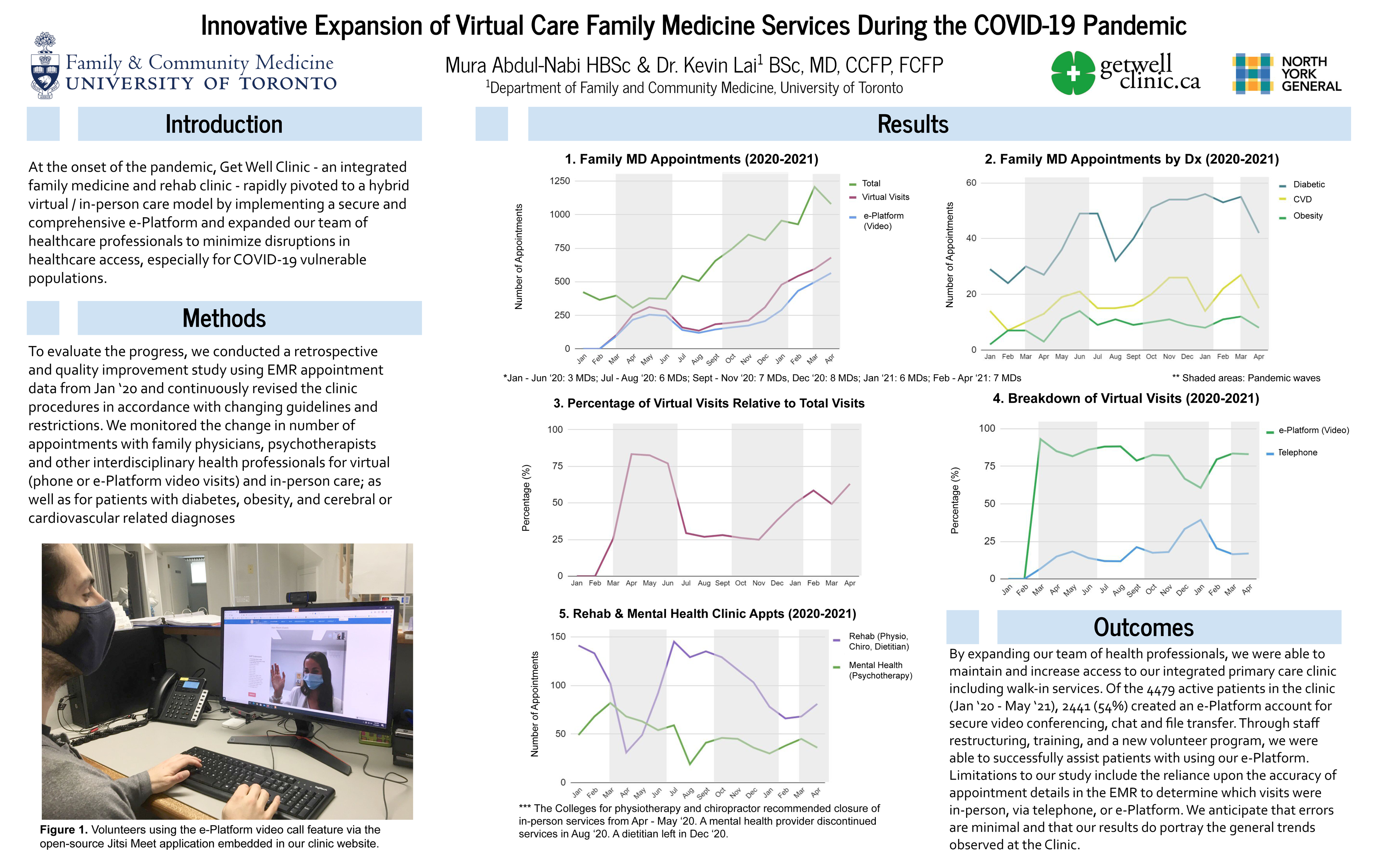PRP053: Innovative expansion of virtual care family medicine services during the COVID-19 pandemic
Kevin Lai, MD, BSc, CCFP, FCFP; Mura Abdul-Nabi
Abstract
CONTEXT: The COVID-19 pandemic posed challenges to maintaining accessibility to quality family medicine and urgent care that is open to the public during changing restrictions and shutdowns. At Get Well Clinic, we implemented a secure and comprehensive virtual care e-Platform and expanded our team of healthcare professionals to minimize disruptions in delivering care, especially for vulnerable populations. OBJECTIVE: To measure the success of improving access to care through a virtual care innovation. STUDY DESIGN: Single-site, retrospective and prospective observational quality improvement study. SETTING: Integrated primary care clinic. POPULATION STUDIED: Entire clinic population attendees during pandemic. INTERVENTION: Reorganized clinic operations to accommodate virtual care. Measures: Monitored the change in the number of appointments with family physicians, and other allied health professionals for virtual and in-person care, as well as for patients with various diagnoses including those related to mental health and diabetes. RESULTS: Expanded our team of family physicians with hybrid virtual-care/in-person care model which led to an increase in the number of monthly visits from 423 (January 2020: pre-pandemic) to 810 (December 2020: mid-pandemic). Correspondingly, a roughly two-fold increase in appointments made by diabetic patients was seen over the course of this period. General trends suggest that appointments for patients with mental health related diagnoses or those seeking psychotherapy remained relatively constant over the course of the year. From April to June of 2020 (early pandemic) 80.8% of all visits were conducted virtually. Throughout 2020, 81.8% of all virtual visits were conducted via our encrypted video conferencing e-Platform. Of the 4479 patients seen at the clinic (Jan 2020 - May 2021), 2441 patients (54%) created and used an e-Platform account. CONCLUSION: Preliminary findings suggest that the Clinic was able to increase its capacity to serve the community and successfully implement a novel virtual care e-Platform. By sharing our experiences and collaborating with others, our goal is to enhance the delivery of healthcare without compromising information security and the health of vulnerable populations.
(Dr. Kevin Lai, BSc, MD, CCFP, FCFP & Mura Abdul-Nabi, HBSc)
(Dr. Kevin Lai, BSc, MD, CCFP, FCFP & Mura Abdul-Nabi, HBSc)

Michelle Greiver
michelle.greiver@nygh.on.ca 11/20/2021Congratulations on this innovative approach to improving care during the pandemic, and on systematically collecting data. We should have more initiatives like this. There are likely important lessons on providing virtual care that can inform care after the pandemic. What aspects do you think should be embedded as part of routine care?